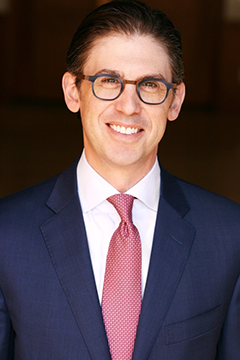Mastering the Art of Rebuke

Parashat K'doshim presents us with a Holiness Code of conduct. So central are its commands to the overarching ethical, legal, and ritual concerns of the Torah that Rashi famously commented, "Most of the body of the Torah depends on it [this parashah ]" (Rashi on Leviticus 19:2). In fact, the passage itself falls right in the middle of the scroll!
To give a comprehensive overview of K'doshim in these lines would prevent us from exploring any one idea in depth, so instead let's explore a single, often misunderstood verse.
"You shall not hate your kinsfolk in your heart. Reprove your kin but incur no guilt on their account" (Leviticus 19:17). What does this mean? Does the Torah intend to legislate against a feeling, "hate"? How does "Reprove your kin" connect with the next clause, "but incur no guilt on their account," and what does it mean to "incur guilt" in this case?
With respect to the translation our Chumash provides, I would like to offer a different, idiomatic translation: "You must not keep a feeling of revulsion at your fellow to yourself. Instead, you should rebuke your fellow so that you not become guilty by association with him."
The verse assumes a few conditions:
1) Someone close to you-a friend, a relative, a member of your community or your people, or simply another person-has committed a sin. The text uses the word achicha, which literally means "your brother." But this term extends beyond your immediate family to designate any member of your "people," which can be defined as narrowly as "a fellow Jew" or as broadly encompassing as "a fellow human being"!
2) You have witnessed or learned about your fellow's transgression, and it troubles you. The verb tisna, "hate," can describe action based on a feeling of aversion or revulsion toward another.
3) You might be inclined to hold your tongue and not confront your fellow about your discomfort with his or her wrongdoing, letting your hostility stew inside of you. The text says that "you should not hate . . . in your heart " (emphasis added). Sefer HaChinuch , an anonymously penned, thirteenth-century Spanish work of ethical literature, teaches that "secret hate is more pernicious than open hatred. . . . The reason for the prohibition is obvious. Secret hatred causes strife, enmity, and informing ['tattling'], that most odious of traits" (Sefer HaChinuch 238). This explains why the text commands, "Instead, you should rebuke. . . ." Don't keep your feelings secret, the text says. Have out with them! Nachmanides, also writing in thirteenth-century Spain, further observes, "People generally conceal their hatred." To refrain from a confrontation with a known sinner certainly fits human nature.
4) If you fail to call your fellow to account for his or her sin, you will become guilty by association. The grammar of the verse makes it clear that to fail to rebuke makes you accountable for the sin together with the one who transgressed in the first place. Judaism does not speak of "innocent bystanders" to sin.
We are left with an instruction that challenges us to do something that often makes us feel anxious, vulnerable, and uneasy: we are told to rebuke someone who has done wrong rather than hold our tongues and think, "I better not get involved." Rebuking a fellow may be a Jewish value, but it flies in the face of an American maxim that everyone knows: "Mind your own business." The Torah would have us call our fellows to task when they transgress rather than mind our own business. Is that nosy? Perhaps. Is it necessary? Absolutely.
Why must we sometimes rebuke even when it makes us uncomfortable? Because Judaism demands that each of us act responsibly toward every other. This necessitates not only that we encourage good behavior in others, but also that we censure others when they stray. Judaism frowns on complacency with evil. Judaism sees effective rebuke as a measure of our sincere desire to multiply goodness in the world. The Talmud says, "Whoever can stop the members of his household from committing a sin, but does not, is held responsible for the sins of his household. If he can stop the people of his city from sinning, but does not, he is held responsible for the sins of the people of his city. If he can stop the whole world from sinning, but does not, he is held responsible for the sins of the whole world" (Babylonian Talmud, Shabbat54b). Midrash sums it up most eloquently: "Love unaccompanied by criticism is not love. . . . Peace unaccompanied by reproof is not peace" ( B'reishit Rabbah 54:3).
Even if you accept this argument, you could easily (and correctly) reply, "Easier said than done!" Centuries ago, a few prominent rabbis noted how hard it is to give-and receive-constructive criticism. In Sifra K'doshim we read, "Rabbi Tarfon said, 'I swear that there is none in our generation who is qualified to rebuke his fellow beings.' Rabbi Elazar ben Azariah said, 'I swear that there is none in our generation who is able to accept rebuke! If one says, "Take the splinter out of your teeth," the other retorts, "Take the beam out of your eyes!'" Rabbi Akiva said, 'I swear that there is none in our generation who knows how to rebuke his neighbor'" (emphasis added). The midrash implies that offering effective rebuke requires skill and sensitivity. True, no one likes to be criticized, but with appropriate skill and sensitivity the rebuker might make the recipient more willing to "swallow the medicine."
Maimonides, writing more than eight hundred years ago, offers tips for rebuking that have survived the test of time: "He who rebukes another . . . should administer the rebuke in private, speak to the offender gently and tenderly, and point out that he is only speaking for the wrongdoer's own good . . . " ( Mishneh Torah , Hilchot Dei-ot 6:7). Anyone who has ever participated in an "intervention" for another person caught in the downward spiral of substance abuse or other harm understands the wisdom of Maimonides' advice.
We end as we began, with Rashi, who advised that the guiding principle in offering rebuke is to avoid putting another person to shame in public (see Rashi on Leviticus 19:17). There's a fine line between helping and humiliating. Yes, to err is human. But to rebuke tenderly is divine. Mastering the art of rebuke requires great sensitivity, great strength of character, and great love.
Rabbi Jonathan E. Blake is associate rabbi of Westchester Reform Temple in Scarsdale, New York. A graduate of Amherst College (1995), he was ordained at Hebrew Union College-Jewish Institute of Religion in 2000 and was a regular contributor to 10 Minutes of Torah in 2005-2006. You can send feedback directly to Rabbi Blake at office@wrtemple.org.
Rabbi Blake addresses the halachah and psychology of rebukes. Many Torah readers wonder: were rebukes used successfully in biblical times? Examining reproof in narratives can help us find the answer.
Most of the figures in Torah fall short of Rabbinic guidelines of rebukes. Korach is a case in point. A Levite who resented having a lesser authority than Aaron and Moses, Korach gathered two hundred and fifty other disgruntled men and accused Moses and Aaron, "You have gone too far! For all the community are holy, all of them, and the Eternal is in their midst. Why then do you raise yourselves above the Eternal's congregation?" (Numbers 16:3).
Korach's rebuke is neither private nor tender. His motive is not to improve Moses's character or to save Aaron from sin. While he expresses concern for the community, his method fails because his delivery evokes defensiveness. Not only is Korach ineffective in his rebuke, but he also receives God's punishment, along with his sidekicks, in a fatal inferno.
Similarly when Aaron and Miriam try to reprove their brother Moses, their behavior is indirect and passive-aggressive. Instead of frankly criticizing Moses for hogging the role of prophet, they disparage his wife. Like Korach they are punished: Miriam develops a skin ailment and is quarantined, while Aaron watches her suffer (Numbers 12).
On the other hand, the five daughters of Zelophehad use reproof effectively (Numbers 27). The laws of inheritance dispossess daughters. Zelophehad had no sons and thus his name and property would fall to another family within the clan. Instead of attacking Moses or the other leaders, Zelophehad's daughters approach respectfully at a public meeting. Without criticizing, they present their case humbly. The sisters do not use language of self-interest, but of honor to the memory of their righteous father. They ask for the rule to be changed. They are rewarded, as their reproof is done with sensitivity and reverence.
Rabbi Valerie Lieber is co-rabbi of Temple Tikvah, a recent consolidation of Temple Israel of Jamaica and Temple Emanuel of New Hyde Park, New York.
K’doshim, Leviticus 19:1-20:27
The Torah: A Modern Commentary, pp. 894-907; Revised Edition, pp. 797-813;
The Torah: A Women's Commentary, pp. 701-722

